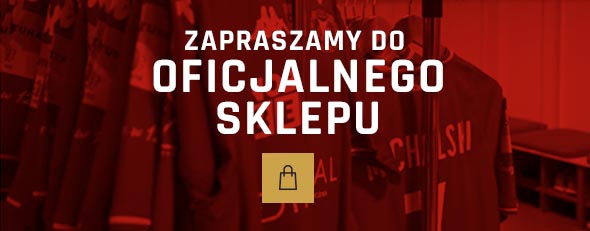Global categories
Widzew always deserves respect - an interview with Marius Baciu
Steaua Bucuresti was one of the Widzew Łódź's rival in the group along with Atletico Madrid and Borussia Dortmund. Marius Baciu, who became Steaua's player just before the beginning of 96-97 season, got a chance to show his skills to European audience. The official page of RTS Widzew Łódź proudly presents the interview in which the Romanian player reveals his memories about that time followed by opinions on recent situation of football in his country.
***
Bartosz Koczorowicz: It has been almost 20 years since Widzew Łódź and Steaua Bucuresti played together in UEFA Champions League group stage. Throughout all those years you were representing several football clubs from different countries. Now you are a coach, but with the end of season 2014-2015 you have stepped down as the coach of Concordia Chiajna. What are you doing right now?
Marius Baciu: I am working on a new project at the moment. I am also in talks with few clubs from abroad. I can say that I am open to receiving offers from Poland as well. However, I don't want to reveal much before I sign the agreement.
Speaking about the beginning of your career - as a youth player of Gaz Metan Medias it would be natural to start the professional career in a mother club. However, your first match as a senior player took place in the 1992-1993 season in Inter Sibiu - the local opponent's team.
- At that time Inter was playing in the top division in Romania (Liga I). That match you have mentioned was in fact the only one in that season. I was only 17 years old when I made a debut in the highest level in my country. The real play happened in Gaz Metan, the year after (in Liga II - ed. note). That resulted in my return to Inter, but after couple years the club started having financial problems which led to relegation followed by closure another years later.
Inter was relegated in the 1995-1996 season. At the same time, the champion of Romania, Steaua Bucuresti, showed an interest in you. Finally, you became their player in the next season. That must have been a significant change for such a young player like you: from fighting against relegation to competing for trophies and having an opportunity to show oneself in Europe.
- Steaua was mainly interested in young and talented players and I was already playing for the Romanian U-21 national team. Probably that was the reason why I became a Steaua player. Inter did not have a bad team, but because of the already mentioned financial problems in this club I have decided to accept the offer I was given. Steaua was the best team at that time. Therefore, in my opinion, that was the best choice to go play there. They were being controlled by the army, whereas their opponent, Dinamo, was governed by the police. From the formal point of view, I was a policeman, but no one created any problems with my transfer. The final decision belonged to me.
Did you feel any pressure because of this situation? The expectations have grown much in a very short period of time.
- Not at all. I always wanted to play among the best. I treated my situation as a big challenge, but also a great chance. When I came to Steaua, Anton Dobos, who was the first option on my position, decided to leave. This was a very important fact to me, especially because I was already playing on the international level as a youth. After the first match against Club Brugge I have managed to become the first-squad player. In total, I have spent six years in Steaua and for the whole time I missed less than 10 matches because of sitting on the bench or being injured, I guess. What I also remember is that I was suspended while Steaua was playing the away match against Widzew in Champions League.
On the road to the UEFA Champions League group stage, as you have already mentioned, Steaua had to eliminate Club Brugge. You had done it and, therefore, you could celebrate the qualification. Did you want to meet specific teams before the draw of the groups took place?
- We did not have any special wishes. All the teams at this phase of the tournament were strong, including Widzew of course. Many players had left Steaua before the beginning of the season. This was a chance for such young players like me at that time as they replaced the leavers in the squad. For sure, Atletico Madrid was the greatest favourite of the group in our eyes. Anyway, facing any team in Champions League was a challenge for us. Once we got to know, who is in the group with us, we said to each other that we had nothing to lose. We did know much about Widzew to be honest. However, from the very beginning we were treating all the teams in this group equally.
The beginning of the group stage phase was very unlucky for you. In 28th minute of the match against Atletico in Madrid you got the red card. Steaua lost 0-4 becoming the last team in the group after the first round.
- But those were the best 28 minutes I have ever played for Steaua! After this match I received an offer from Fabio Capello (Real Madrid’s coach in 96-97 – ed. note). Before I was sent off the pitch, the score in Madrid was 0-0. After my booking we were too weak to effectively defend the goal with ten players.
Obviously, you also had to miss the next match which was the home battle against Borussia Dortmund. Steaua lost 0-3. While you were not on the pitch, your team conceded nine goals (four against Atletico, three against Borussia and two against Widzew). That is more than a half of all the goals lost by Steaua in the whole group stage!
- Personally, that was a great situation for me. My reputation was getting higher and higher. Romanian press noticed that too and they were writing articles about it. Anyway, with or without me in the squad, Borussia Dortmund was still too strong for Steaua at that time, in my opinion.
You must have regretted that matches where you had to sit on stand and watch your colleagues. You had no influence on the score while the team needed you.
- Of course, I wanted to play against the champion of Germany very much. Borussia had a fantastic squad consisting of players who had clinched the European Championship title couple months before. That would have been a great opportunity to show myself against such a team.
The first full match in Champions League group stage played by you was the one against Widzew Łódź in Bucuresti. Polish champion, due to squad problems, delegated a team with almost no substitute players on the bench. The main objective for Widzew was to survive without injuries.
- I remember that despite their problems it was as a very ambitious and aggressive team. We had our problems to score a goal. The match in Bucuresti was very difficult for us and suddenly one situation couple minutes before the last whistle and the ball was in the net because of one Widzew defender who scored an own goal.
As we already mentioned, you also missed a match in Łódź because of the yellow card in Bucuresti. Widzew took revenge on Steaua and won 2-0. The rule had been finally confirmed. When Marius Baciu was not in the squad, Steaua was losing goals. Was that noticed by other clubs as well?
- Once Champions League finished, I started receiving more and more interesting offers from different countries – Spain, Italy and Germany. However, I was a very young player who just entered the new team. Therefore, Steaua did not want to let me go anywhere at that time.
Speaking about the Champions League group stage finish, your last match in Dortmund was a classic exchange of punches. Borussia won 5-3 and you have scored one of the goals for Steaua.
- We already knew that we would not qualify further. Therefore, our attitude was that we would like to end this adventure with a good performance. It was easier to take such an approach at that moment as we had absolutely nothing to lose.
Atletico Madrid and Borussia Dortmund advanced to the knockout stage of the tournament. Which of those two teams was less comfortable to play with and why?
- It is difficult to compare those teams. They were representing two different styles. Looking at individuals, Atletico had a ? few incredible players, but as a team they were not as strong as Borussia Dortmund. Furthermore, my opinion is that BVB was also better than their country rival - Bayern Munich.
How does it look when we talk about individual players only? Which player was the toughest to play against, if you had to choose only one from this group?
- This is even a more difficult question than the previous one, as there were many fantastic players in the opponent teams. But, if I had to choose only one, that would Julio Cesar. I liked that player the most. His play was very impressive to me.
@page_break@
Do you know what is going on with Widzew Łódź right now?
- Recently, I must admit that I was not following what was happening in Widzew, but I remember that the club had financial problems in the past. Anyway, this team deserves respect no matter the situation.
Due to financial problems Widzew had to start again from the 5th division. One year ago the new entity reactivated the club. Right now Widzew plays on the 4th level in Poland. This scenario sounds similar to some Romanian clubs which some time ago were on the top of domestic league playing in European cups and now have to start from scratch. The examples are Otelul Galati and Unirea Urziceni. Why some clubs end up so drastically couple years after they had played against the strongest European teams? Is there any common root for all those cases?
- If I had managed such a club I would have been doing my best in order to double the income the club would receive. The reason why all the clubs mentioned by you went down is because they were not being run by people from football environment. They were representing all other types of business but not sport. Furthermore, I remember many strange things happening in all fallen Romanian clubs.
What does “strange things” mean in this context?
- For instance, the owner of Unirea Urziceni invested a lot of money before entering the club and later on he invested another tranche of money into real estate market. When the economic crisis came to Europe he could not have helped the club as his money was everywhere else. Since that moment Unirea started to swoop down. The owner, in fact, was not interested in football at all. It is no wonder that in such a case he primarily wanted to save his own businesses completely forgetting about the team he had. The year after Unirea played in Champions League they did not manage to win anything in Romania.
When it comes to Otelul Galati, as long as the manager of the club was a football person, they were at the top of the Romanian league. However, after Otelul became the champion in 2011 the owner decided to leave the club and try himself in politics. He sold the team to a big insurance company which had no managerial experience in football. This company was also interested more in other types of business. This must have led to bankruptcy of the club and it finally did. So, answering
to
your previous question – yes, there is a common root for all those cases we discussed.
The only club in Romania, which I can call a professional one in terms of management, is Steaua, because they understand that in order to have results you need to invest first. All good players are interested to go there.
Nobody can go back in time to correct the mistakes. Therefore, what would be your advice for people who decided to take part in reactivation of those clubs?
- I understand business people very well. They usually invest at the first stage of their activity within the club. However, this will never guarantee good results in short term. But, it is impossible to create a great team overnight. You need to be patient and have the right people in management board. In Romania, managers prefer to save the business and sell a player rather than wait or invest money in the team. Football on the level which was achieved by Widzew or Otelul is a great business. Such clubs should never meet bankruptcy. The problem is that sometimes money goes in different places. Having big funds is not enough. You need to know also how to manage them.
You have previously mentioned the cases in which the owners were not entirely focused on running their clubs.
- Some of them also think only about themselves by making more money and with the time passing by they eventually drop their interest in football as they cannot be concentrated on two things at once. Teams in Romania, like Unirea or Otelul, previously were playing in lower divisions and after that they reached the top in the country. At the beginning of the road they were looking well-organised. They seemed to understand that everything can be achieved by small steps. However, as the time was passing by, the situation was becoming worse and finally it was getting out of control. The money earned in football was being spent on totally different things, mostly personally-related.
When there is a sport success, clubs that remember their past in lower leagues try to immediately take opportunity from that situation by selling players. Usually this ends up with poor performance in the next season which leads to stagnation.
- If the club earns a big amount of money, it should invest around 30-35 per cent in the team in order to introduce fresh blood. I do not agree with the politics of selling out almost the whole team. It is good to sell maximally one or two players a year and replace them with someone who is looking for challenges.
On the other hand, big money causes problems as well. In my opinion, the key is to find people who know and care about football. Having money is not enough, if you are not fully focused on the plan. Another problem is infrastructure in Romania, in which we do not invest enough. There is a plenty of work to be done in the area of youth training in terms of bases. This problem also relates to youth coaches who are underpaid.
As we started to discuss football topics in a broader national perspective, let us discuss
about
the national teams. Romania and Poland are in the same World Cup 2018 qualification group. They are the only teams from the group which played in EURO 2016. Poland reached quarterfinal in this tournament. Does that fact automatically make Nawałka’s team favorites of this group?
- I liked Poland’s play during the EURO 2016 very much. Based on that I can say that is one of the strongest teams in our group. Romania can cause many problems toward others, but it’s Poland who has higher quality right now.
What was the reason why such a balanced team in terms of all formations like Romania took the last place in the group with France, Switzerland and Albania? After a tough match against hosts and a draw against the team being coached by Petković hardly anyone expected a loss with the biggest underdog of this tournament.
- The team looked as if they were not at all inspired by the coach. With all due respect for Mr Iordanescu, he had an almost 10 year gap in his coaching career! The mission he decided to take on was too big for him. Besides, his selection was not perfect. At least two or three great players stayed in Romania. However, this was not the main problem. We do not have fabulous players in our teams. Most of them represent foreign clubs, but they lack regular play on the pitch. Of course, recently we do not have many alternatives, but I believe that this team could have been selected and organized better. Therefore, the value of the team was not the highest one and the effects were expectable. The results we achieved on the EURO 2016 fully reflect the situation in Romanian football.
Are there perspectives for an improvement in this situation?
- We cannot have big expectations from our national team, when our clubs are organized in such a way as they are recently. We have a lot of teams that suffer costs of youth development. Without help coming from families of children being trained this would be even harder to run. Our country as a state does not recognize football as the top priority domain. People who can potentially invest in football are afraid because of series of arrests that occurred over the past years. There are no facilities, like I know from France, where politics is strongly involved in sport. Every country should treat sport as one of the top priorities.
I guess the comparison with France is not accidental. After years spent in Steaua you became the player of Lille OSC in 2002 and spent two seasons there. How big change was it for you from time perspective?
- Like every player from Eastern Europe at that time, I was dreaming about travelling abroad. As I said previously, despite a lot of offers, I was not allowed to go anywhere. I had played many years for Steaua and eventually there was an opportunity for me to change the club for the Western one. I started my negotiations with Lille OSC. I also got an offer from Ukraine, which looked great. I could earn a lot of money, but I was mostly interested in playing in stronger league. I was also in talks with German and Italian clubs. Finally, I chose Lille OSC, as they gave me the best and most concrete offer.
I felt that their coach at that time, Claude Puel (with whom I still have a good contact), really wanted me in his team. Therefore, the club did not hesitate to give me a contract. I treat him as a model person and coach. Under his influence I have also decided not to leave football and continue my journey as a coach as well.
Have you ever regretted any decision throughout your whole career?
- Not when I was a football player. Steaua Bucuresti was everything for me. Those are hard words to say because I am emotionally related with this club, but from time perspective I have realized how big club sent an offer to me. That was a huge chance to play in Europe. Unfortunately, the transfer was blocked by George Becali, who gave a firm answer that I am staying in Bucuresti. I remember he said he was not going to make a person traffic. That was his expression because I had become a Steaua player three months before that situation happened. I could have a chance to go, but instead it was Daniel Prodan (signed a contract with Atletico Madrid – ed. note) and Iulian Filipescu (became the player of Galatasaray S.K. – ed. note) who got an acceptance to leave the club, so this was enough for Steaua in that season.
Even though Lille OSC was not listed among the clubs fighting for trophies in France, it consisted of already great players in the team like Eric Abidal and promising talents as Mathieu Debuchy or Yohan Cabaye.
- Eric was my roommate at that time. He was a truly great player. We were complementing each other very well on the pitch. It was a great comfort to have such a player next to me. When it comes to Cabaye, in 2004 he was just a kid who had already entered his professional career. He was not getting many chances but rather training with the first team in order to gain some experience. The same situation was with Debuchy, with whom I also played a little before he went to Arsenal.
Was Eric Abidal the best player you have ever had a chance to play with in the defense?
- Yes, but I would not be fair with the answer if I had not mentioned “Didi” Prodan as well. While I was playing in Steaua having Daniel next to me, I was receiving the biggest amount of good offers. He and Eric were my best cooperators in my whole career.
Are you still in touch with both of them?
- “Didi” is my friend and we are talking with each other quite frequently. When it comes to Eric, it seems he changed his phone number once he moved out from Spain so I lost the contact for now. It might be a problem to restore it as I do not have a Facebook profile. (laughter)























